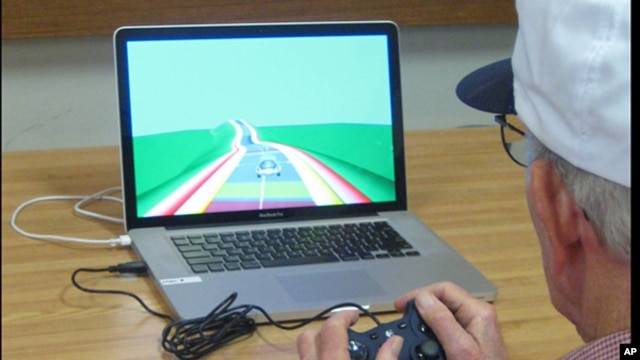- Jul 10, 2004
- 24,526
- 16,976
- 1,405
Keep your mind active...learn to play an instrument
*****************************************************************
(CNN) -- At 101, Frank Iacono still plays the violin. The concertmaster for the Providence Civic Orchestra of Senior Citizens in Rhode Island, he particularly enjoys playing polkas and jigs.
"It keeps my mind active, and it gives me a lot of pleasure," Iacono said.
The orchestra's executive director and co-founder, Vito Saritelli, said Iacono is extremely sharp for his age.
"Music has played a good part of his longevity," said his wife, Mary Iacono, 94. "We're blessed that we're both in good health."
Music meets medicine Music meets medicine
As scientists race to figure out how to promote healthy aging of the brain, and prevent dementia, their preliminary advice for senior citizens has become a chorus of voices: "Stay active! Have hobbies! Be socially engaged!"
Playing music, for some people, is a natural answer to all of those recommendations. Frank Iacono, for instance, has been playing violin since he was 13 -- just because he loves it.
But does music playing in particular stave off dementia? What about just listening to music? How many years do you need to engage in music before it benefits your brain?
Researchers are exploring these questions in the face of staggering statistics about the aging population. The number of Americans 65 and older with Alzheimer's is expected to triple nearly by 2050 -- 13.8 million from 5 million now. The annual cost of dementia in the United States in 2050 will be $1.2 trillion, according to the Alzheimer's Association.
Early research suggests playing music may hold back dementia symptoms by about five years -- which would be significant if it proves to be true, said Brenda Hanna-Pladdy, assistant professor of neurology at Emory University, who studies cognitive functioning among musicians.
Playing for time: Can music stave off dementia? - CNN.com
*****************************************************************
(CNN) -- At 101, Frank Iacono still plays the violin. The concertmaster for the Providence Civic Orchestra of Senior Citizens in Rhode Island, he particularly enjoys playing polkas and jigs.
"It keeps my mind active, and it gives me a lot of pleasure," Iacono said.
The orchestra's executive director and co-founder, Vito Saritelli, said Iacono is extremely sharp for his age.
"Music has played a good part of his longevity," said his wife, Mary Iacono, 94. "We're blessed that we're both in good health."
Music meets medicine Music meets medicine
As scientists race to figure out how to promote healthy aging of the brain, and prevent dementia, their preliminary advice for senior citizens has become a chorus of voices: "Stay active! Have hobbies! Be socially engaged!"
Playing music, for some people, is a natural answer to all of those recommendations. Frank Iacono, for instance, has been playing violin since he was 13 -- just because he loves it.
But does music playing in particular stave off dementia? What about just listening to music? How many years do you need to engage in music before it benefits your brain?
Researchers are exploring these questions in the face of staggering statistics about the aging population. The number of Americans 65 and older with Alzheimer's is expected to triple nearly by 2050 -- 13.8 million from 5 million now. The annual cost of dementia in the United States in 2050 will be $1.2 trillion, according to the Alzheimer's Association.
Early research suggests playing music may hold back dementia symptoms by about five years -- which would be significant if it proves to be true, said Brenda Hanna-Pladdy, assistant professor of neurology at Emory University, who studies cognitive functioning among musicians.
Playing for time: Can music stave off dementia? - CNN.com










